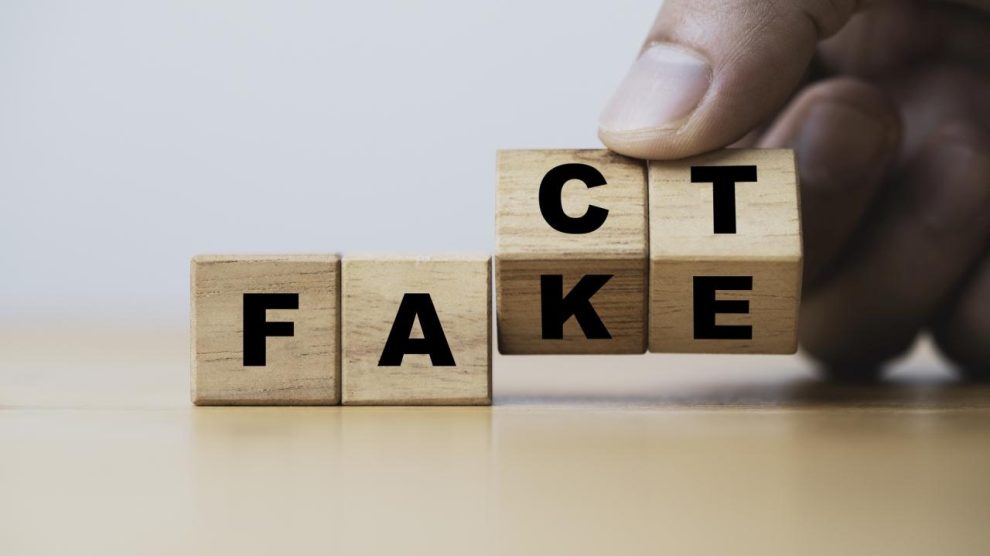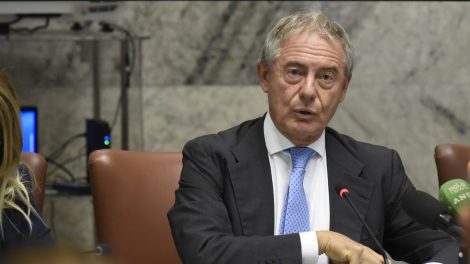Time for an anti-disinfo agency. On Thursday, Italian Senator Enrico Borghi – member of Italia Viva and of Parliament’s Intelligence Committee, COPASIR – tabled a bill to create a national agency against disinformation and for “cognitive security”. The immediate goal is safeguarding the country’s democratic mechanism from influence operations, such as the varied barrage of Russian disinformation and manipulation of the public discourse.
- Two experts, Professor Andrea Vernata and researcher Matteo Pugliese (who discovered the recent wave of Russian fabricated content targeting European users) joined the press conference where the senator unveiled the bill.
It’s urgent. As Senator Borghi recalled, the intelligence services’ latest report to Parliament underscored how the Kremlin continues to pursue a strategy of disinformation in Europe to undermine citizens’ trust in institutions. Hence the proposal to set up a special agency capable of working alongside the secret services as well as the communications authority (AGCOM) to monitor the infosphere, identify such operations and provide tools to counter them.
- The European Union’s External Action Service has already set up a similar effort, dubbed EUvsDisinfo.
- Other EU countries, including France, Sweden and Spain, have their national versions.
In his own words. “We have to rise to the challenges [of] safeguarding the basic values of our society, safeguarding the free formation of opinions, driving out false information. I recognise that it is a slippery subject, but we must not confuse misinformation with disinformation,” specified Mr Borghi at the presser. “Disinformation is manipulation, with artful editing, created by specialised and centralised structures, often in other countries.”
- He then stressed that the bill has nothing to do with censorship – and that the commentary that will inevitably surface, positing that it’s an effort to create an Orwellian information watchdog, will itself “be an indicator [of] Russian disinformation.”
It’s a part of the whole. In an interview to our sister website, Senator Borghi remarked on the need to equip the country with tools to protect itself from such risks “in the knowledge that disinformation is a piece of a hybrid war, fought on various levels and with various instruments that are only apparently unrelated to each other.”
- He highlighted Russia’s “hostile and warlike stance” and Iran’s parallel effort, although that is carried out through proxies like the Houthis, as well as “a silent hostile activity on the part of China,” which carries out “endemic economic colonisation and silent but targeted attacks.”
- His proposal envisages the creation of a new intelligence agency in addition to AISI (internal counter-espionage) and AISE (foreign espionage), under the coordination of the Department for Information Security (which oversees both).
- However, emphasising the desire to “open a [national] debate”, the senator explained that he was “open to any possibility of deepening and improving, including on the organisation.”
The matter of public exposure. Having the new agency constrained by the intelligence services’ traditional secrecy is a prospect that clashes with the need to counter-influence operations in the public space, taking into account the speed to which they are disseminated in the age of information. The answer to that, replied Senator Borghi, lies in the debate the bill intends to open.
- “The tool must allow the good money to drive out the bad, as the latter [that fuels disinformation] has lower costs and more opportunities than traditional journalism.”
- Flagging the hostile diffusion of fake news is entirely consistent with respecting the tenets of freedom of information, he argued.
- The authorities in charge of downstream intervention, in his design, would still be independent bodies such as AGCOM.





